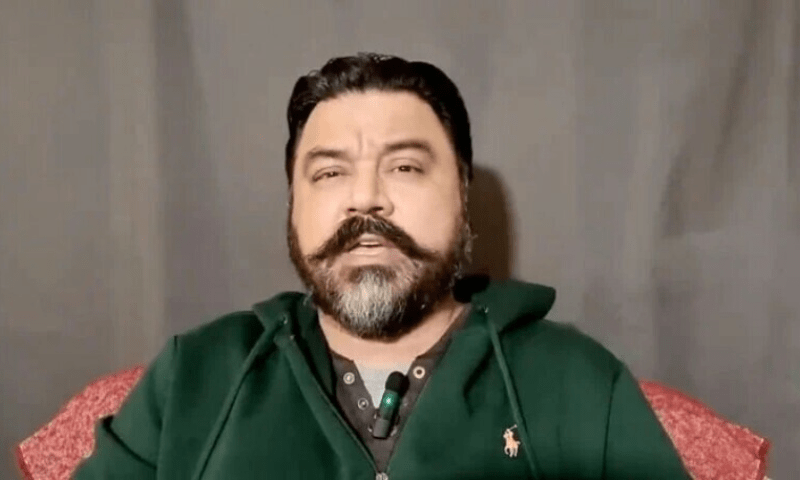LONDON: The defamation trial between Brigadier (retd) Rashid Naseer and UK-based former army officer Adil Farooq Raja opened today at the Royal Courts of Justice in London.
The proceedings, scheduled to continue until July 24, centre on a series of online allegations made by Mr Raja against the retired intelligence officer, which Brigadier Naseer claims are defamatory and untrue.
Mr Raja, who runs a YouTube channel and has positioned himself as a whistleblower, is accused of making multiple defamatory statements on social media, including allegations of corruption, electoral interference, judicial manipulation, and human rights abuse, all of which Brigadier Naseer strongly denies.
Brigadier Naseer appeared in person in the court, whereas Mr Raha appeared via video link. Mr Raja’s witness former accountability tsar Shehzad Akbar appeared in person, whereas Shaheen Sehbai and Syed Akbar Hussian appeared online from the US.
Naseer told the UK High Court that he and his family had faced threats to their lives, harassment, abuse, and serious breaches of privacy following online allegations made by Major (retd) Adil Farooq Raja.
Testifying on the opening day of the four-day trial in London, Brigadier Naseer described the personal and professional impact of nearly a dozen online publications made by Mr Raja.
He was cross-examined by Simon Harding, counsel for the defendant, while Mr Raja appeared remotely via Zoom. Among Mr Raja’s witnesses were former Assets Recovery Unit (ARU) head Shehzad Akbar, who attended in person, and journalist Shaheen Sehbai and Syed Akbar Hussain, who joined online from the United States.
Brigadier Naseer told the court: “False lies were spread about me, posing dangers to me and my family. My daughter had an offer from the King’s College London and so did my son from another UK university, but I was concerned after what Adil Raja did to me and decided to send them to the US for higher studies. I have family and friends in the UK, friends from the UK intelligence I have worked with. I was approached by all of them after the defendant started slandering me on social media.”
During cross-examination, Mr Harding pressed Brigadier Naseer on the issue of “serious harm” and asked why he had not produced evidence of the calls he claimed to have received from the UK in response to Mr Raja’s statements.
Mr Naseer responded that although the calls had occurred, he would not provide details to avoid exposing relatives and friends in the UK to what he said was further threats or online abuse.
He added that the harassment had escalated after Mr Raja allegedly published images of his son and family, leading him to change their academic plans. “One of the persons who attempted to assassinate me was a follower of Adil Raja,” he told the court.
“He was arrested and he confirmed he was inspired by Adil Raja’s publications about me and he wanted to kill me. One of the tweets wished death upon my son after his picture and the US university address were published.”
The trial began with the judge seeking clarity on the evidence supporting Mr Raja’s claims, including alleged interference in Pakistan’s 2024 general elections. The court is examining whether the statements qualify as factual claims, opinion, or potentially fake news, and whether they meet the UK legal standards for defences such as truth or public interest.
The case, filed in the King’s Bench Division of the UK High Court, began in August 2022. In 2024, the court ruled that nine out of ten statements made by Mr Raja were defamatory under English law. Mr Raja had attempted to have the case struck out, but this was rejected by the court.
In April this year, the court ordered Mr Raja to pay over £16,000 in security for costs and legal fees. An additional £6,100 was imposed in May for procedural delays. The trial will now proceed with both parties presenting their witnesses, some of whom will testify remotely.
In a recent pre-trial hearing, Mr Raja alleged that several of his witnesses were facing intimidation and harassment in Pakistan. The court acknowledged the concerns and granted certain protective measures, including permission for remote testimony from overseas locations.
Legal experts say the trial will hinge on whether Mr Raja can substantiate his claims with evidence and whether his statements fall under the UK’s defences of truth and public interest.
The trial continues.
